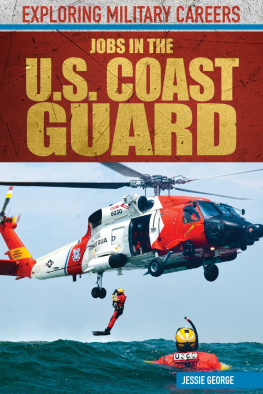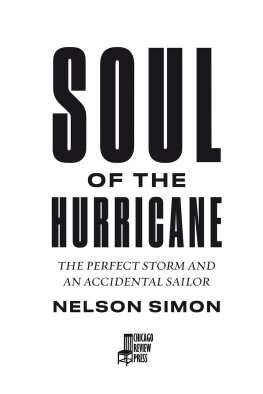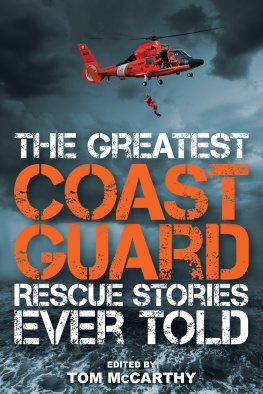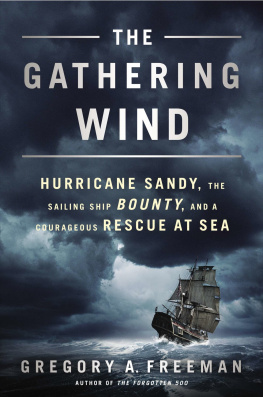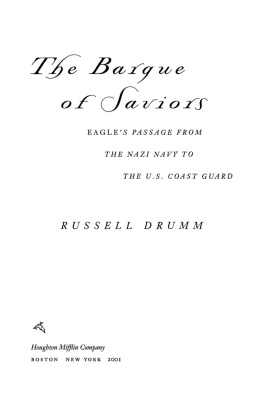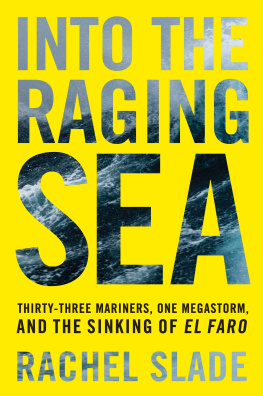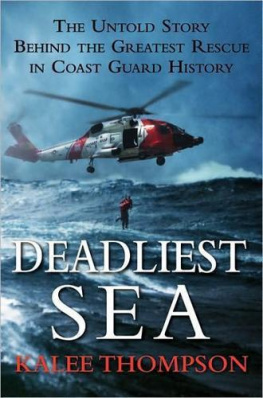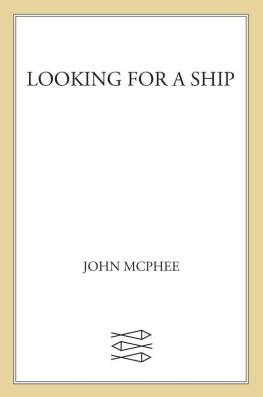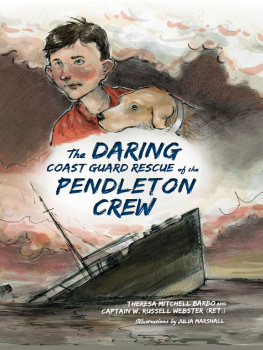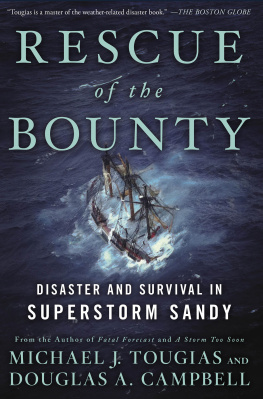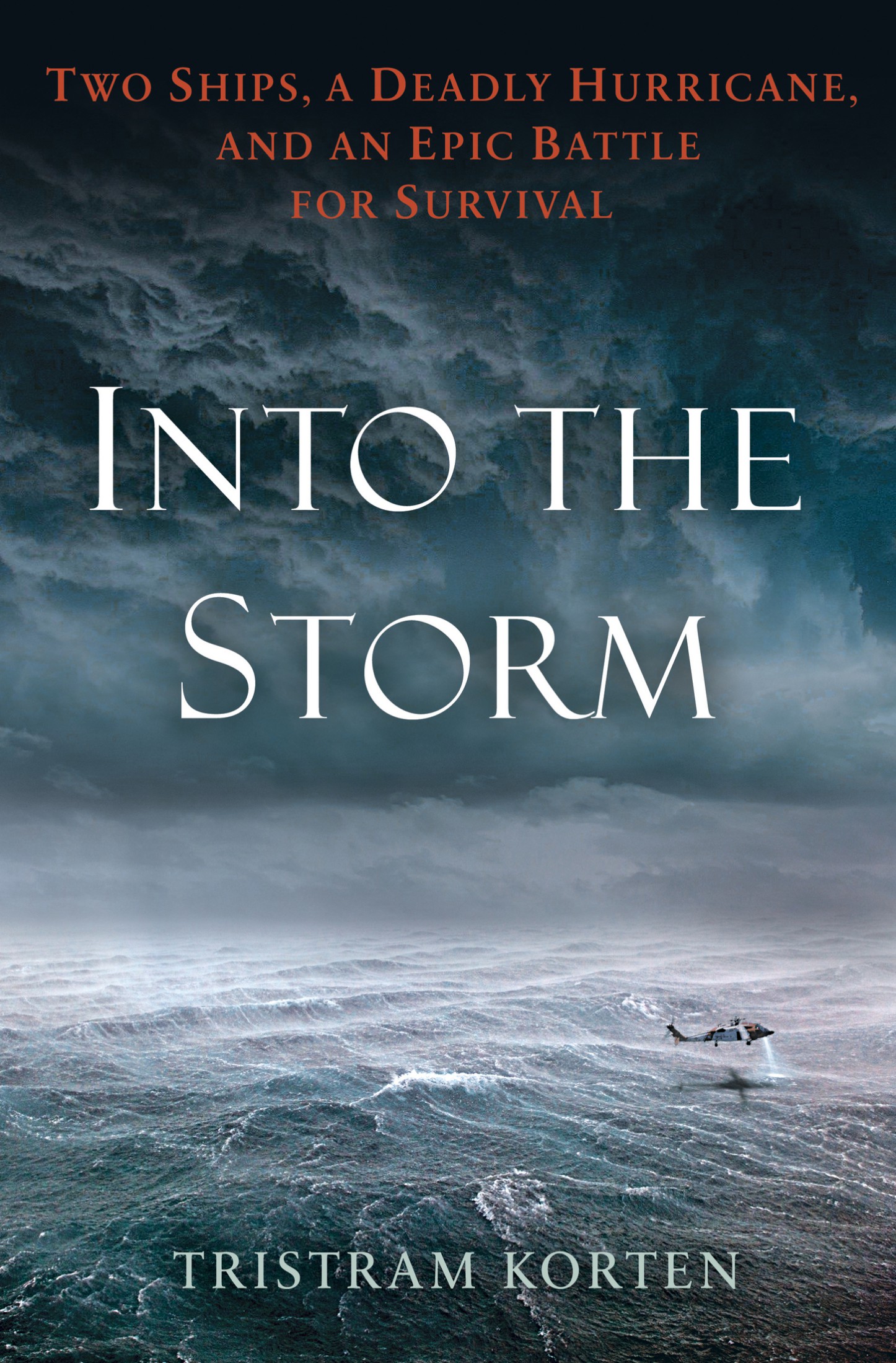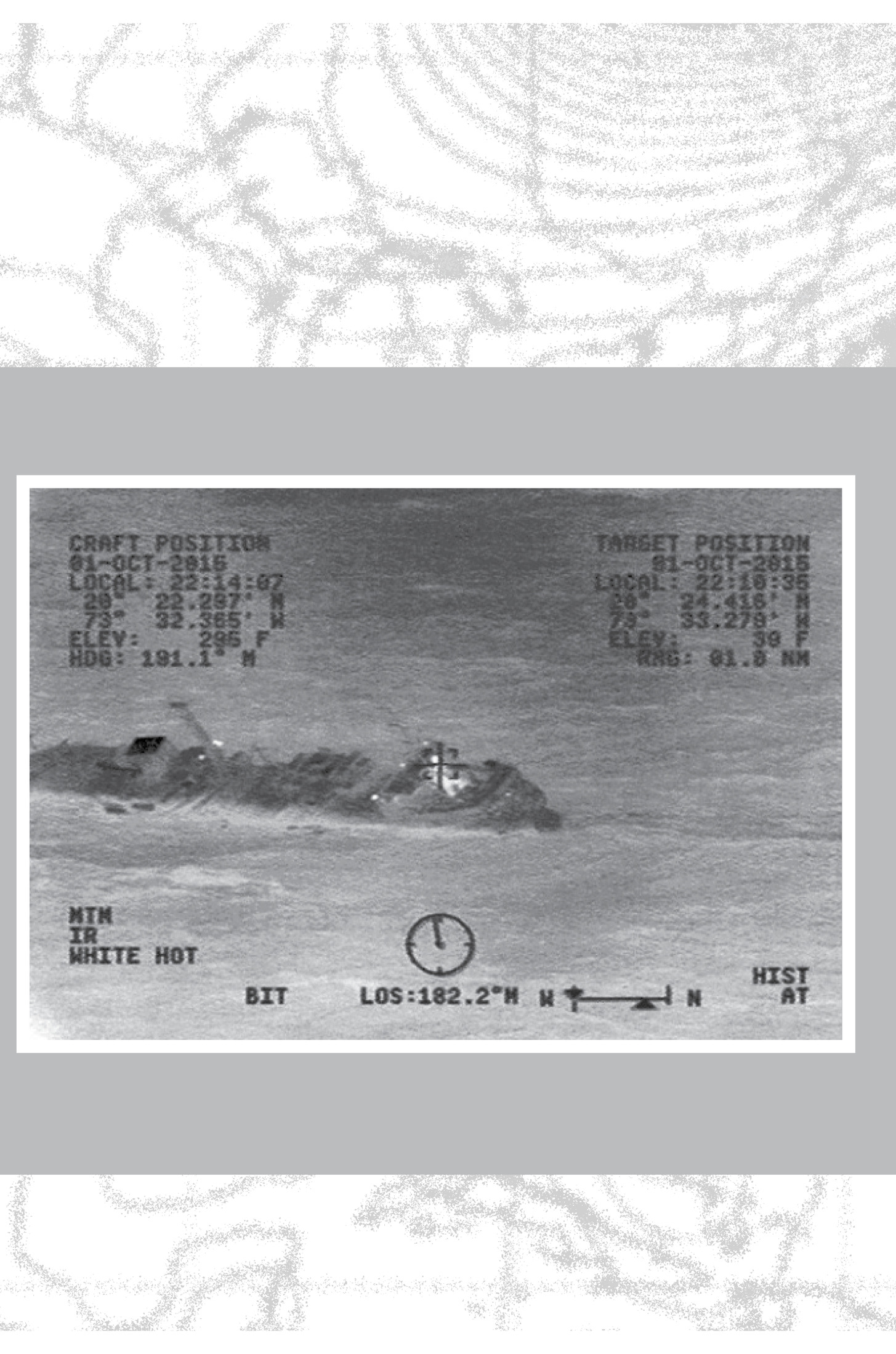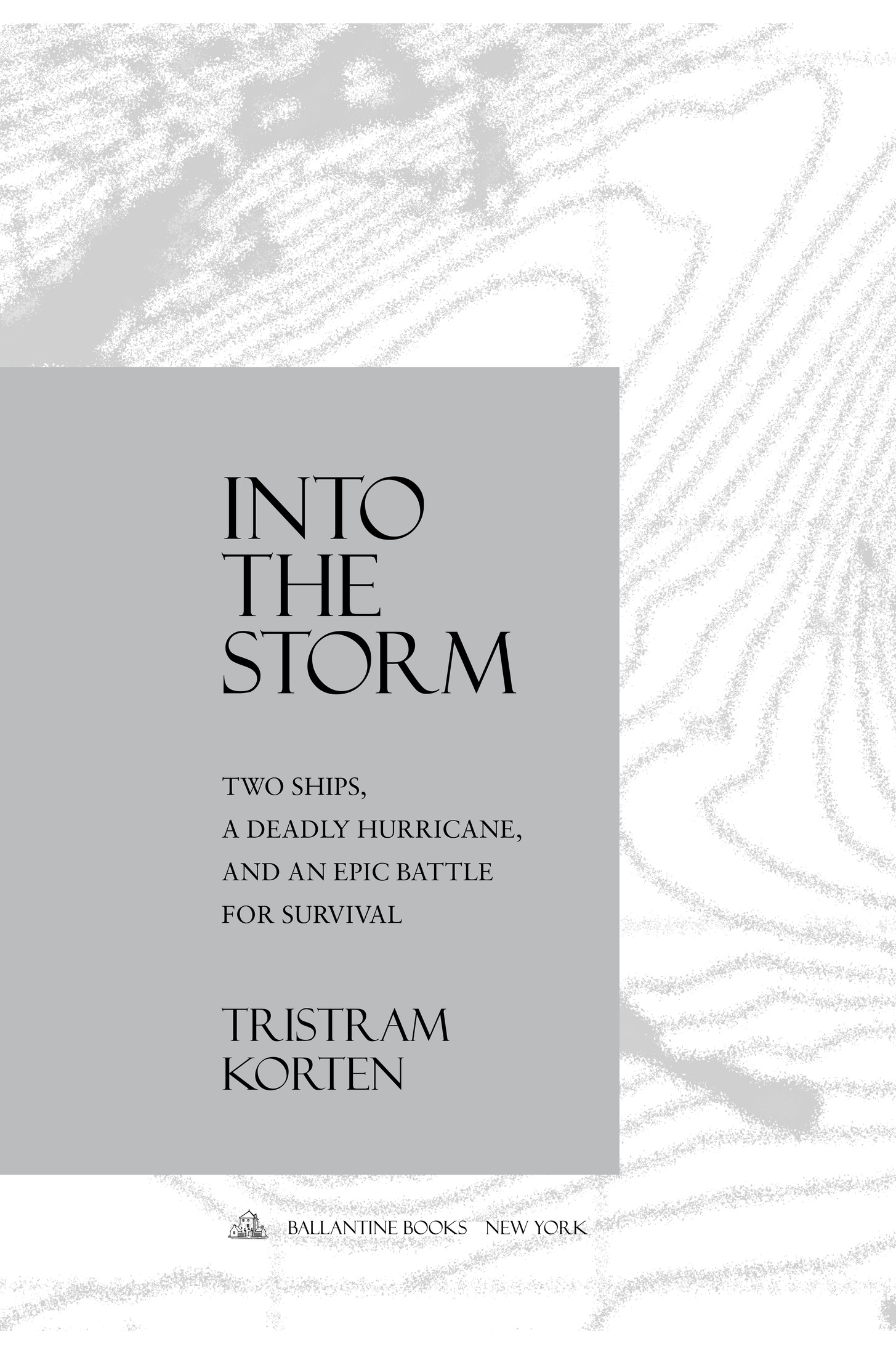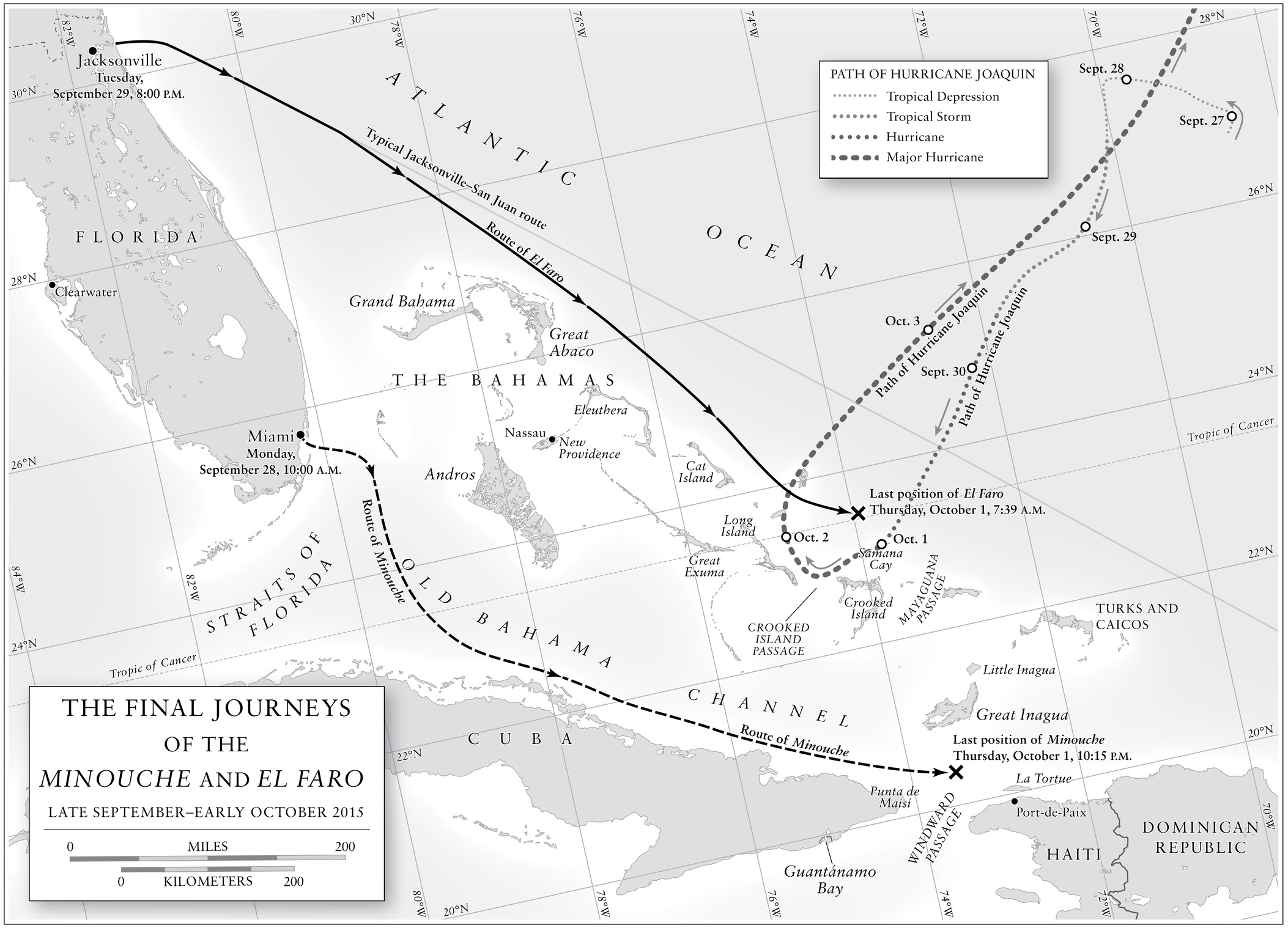Map copyright 2018 by David Lindroth Inc.
All rights reserved.
Published in the United States by Ballantine Books, an imprint of Random House, a division of Penguin Random House LLC, New York.
B ALLANTINE and the H OUSE colophon are registered trademarks of Penguin Random House LLC.
Cover design and illustration: David G. Stevenson, based on an image Kip Evans / Alamy Stock Photo (ocean)
Chapter 1
CLEARWATER
The C-130 cargo plane sat on the tarmac, a hulking, high-winged, metal-sheathed beast of burden, painted white and orange, the belly so low to the ground it obscured its own wheels. The predawn sky above was dark, but not still. It never is. Currents of air continued journeys that had started continents away, where they twisted and flowed across mountains and deserts, then forests and oceans, pulled and pushed by troughs and ridges of low and high pressure, deflected and guided across an invisible topography, propelled by the suns heat and the planets motion. Cool air descended while warm air rose. Within the currents, celestial gases drifted through a transparent skyscape of peaks and valleysnitrogen, oxygen, carbon dioxide, ozone, and water vaporredistributed according to their weight up to the stratosphere. The moisture formed into cloudscirrus, altocumulus, cumulus, stratocumulus, the towering and formidable cumulonimbusthat dissolve and re-form. Below this invisible ballet, in the emergent morning of September 17, 2015, the plane waited on a runway at the U.S. Coast Guards Air Station Clearwater, on Floridas west coast. Nearly twenty thousand horsepower spread over four turboprop engines, waiting to ride up and surf those clouds.
Across town, Ben Cournia woke in the blue-black of early morning to a quietly chirping alarm. He hit the button quickly and eased his long body up, careful not to disturb his wife, Lindsay, as she slept next to him. Shed have to get up in a couple of hours and go through the tumult of getting the kids to school by herselfmaking their lunches, packing their backpacks, and hustling them along through teeth brushing and getting dressed. Lord knows, she needed her rest.
Cournia quietly made his way to the bathroom and bent his tall frame over the sink as he turned on the water, his skin pale in the bathroom light, his long arms ropey with muscles and veins. He had thick brown hair, cut short per regulations, and his eyes were set back under a prominent brow. Cournias swimsuit hung from the shower curtain rod, still damp from the swim in the pool last night. This is their tradition. The night before Daddy leaves for his two-week deployments, the kids get an after-dinner swim in the pool.
As Lindsay cleared the table, Lucy, six, and Lincoln, three, had run squealing to their rooms and wiggled into their suits. Ben also changed into his, then went out and knelt by the pools edge, furrowing his brow, pretending to fix something. The kids came running out, the soft pads of uncalloused little feet thup-thupping over to him, andsplash!they pushed Daddy into the pool. Oh no, hes drowning! Daddy needs help! The kids jumped in for the rescue. They glided under the water like chubby little dolphins. His kids can swim, Ben has made sure of that. Of course, they rescued Daddy. Afterward, they showered and got ready for bed. Ben tucked them in.
Ill be gone for a little bit, he told them each.
How long, Daddy? Lucy asked.
About two weeks.
Are you going to save people?
Yes.
Okay.
Lucy and Lincoln were learning the rules and rhythms of a Coast Guard family: A parent sometimes has to go away to help others. Their father is a U.S. Coast Guard aviation survival technician, otherwise known as a rescue swimmer. His job is to save people in the worst conditions possible. There arent many reasons good and clear enough for a child to accept a parents absence, but rescuing people in danger is one of them.
In the dark of the morning, Cournia packed his toothbrush. He changed into his one-piece green flight suit, freshly washed the night before, and headed down to the kitchen. He brewed a cup of coffee, which he needed to shake the last vapors of sleep from his brain before he started packing the cooler. He didnt want to forget anything, anything. He slid the cooler over to the fridge and opened the freezer door. First to go in were the packages of frozen vegetables: green beans, scalloped potatoes, and broccoli, as well as cookie dough to make chocolate chip cookies in his hooch on his off days. Then he opened the refrigerator door to load perishables: chicken breasts, sirloin steaks, pork tenderloins, sliced cheeses and deli meats for sandwiches. Lots of fruit: oranges, bananas, berries. Cournia makes his living off his body, and he is acutely aware of what fuel is needed for it to work at peak efficiency. The calories in his diet should break down as follows: 40 percent carbohydrates, 40 percent proteins, 20 percent fats. To achieve that goal, every meal during his two-week stint is planned out with military precision. He closed the cooler, latched it, and carried it out to the car.
This house, four bedrooms with the backyard pool on a quiet cul-de-sac, is the couples first home. Cournias last posting was on a snow-covered island in Alaska, where the family lived on base. But theres no base housing in Clearwater, so they scrimped and saved, and now they have their piece of normalcy, their piece of peace. Cournia loaded the cooler and his duffel bag into his Ford Taurus, slid into the seat, and started the engine. He steered south toward Air Station Clearwater, the house in the rearview mirror slipping into the darkness behind him.
Versions of this ritual were playing out across Clearwater and neighboring Tampa. At flight mechanic Joshua Andrewss home, his wife, Marleen, got up to make coffee while Josh, unflappably friendly with prominent ears and an easy smile, started packing his cooler. Josh is from Texas and takes his grilling seriously. He had marinated his meats the day before, sealed them in plastic bags, and put them in the freezer. He had also bought enough food for an extra week or two. Marleen typically questioned this. Honey, are you sure you need all that? He always gave the same reply: Prepare for the worst, hope for the best. If something went wrong, a plane broke down or a big storm came, not unheard of this time of year, and they were stuck on deployment longer than usual, he wanted to be ready.
They, too, had let the kids, Ashton, nine, and Leah, five, stay up later than usual to spend extra time with Dad. Theyd all piled onto the couch and watched The Flash, the superhero show on the CW. When Josh put Leah to bed, she asked why he had to go. In case somebody needs my help,


